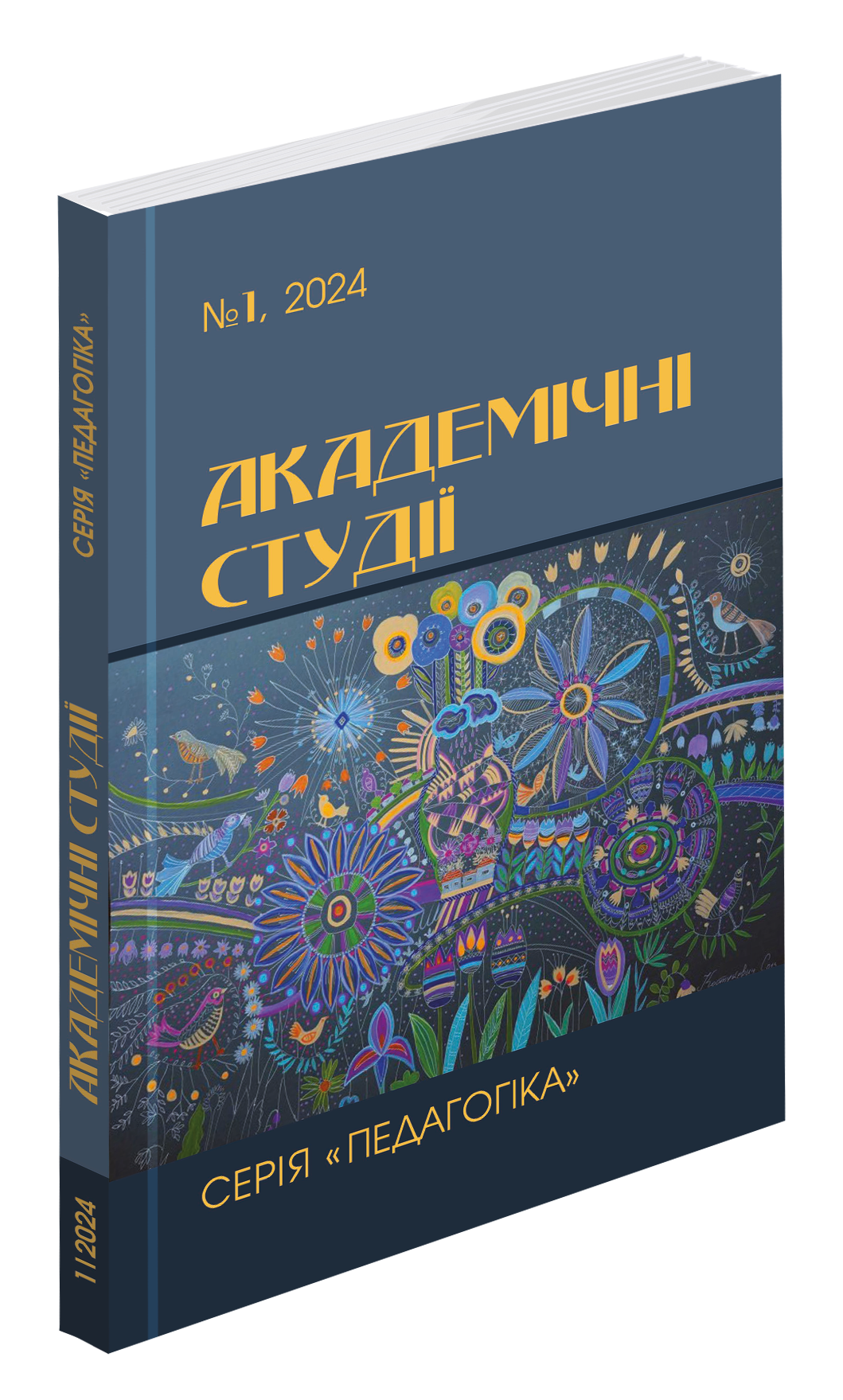Abstract
The article is devoted to the problem of systematization of the process of integral control of the nature of changes in the individual functional capabilities of the body of mixed martial arts athletes. The questions revealed in this work are related not only to the analysis of the course of adaptive changes in the body of athletes, but also to the assessment of the level of technical skill in mastering the most prioritized for this type of sport blows, throws, painful and suffocating techniques. The main methods of controlling the ability to realize in the process of competitive activity the adaptive potential of the athletes' body and the technical level of mastery of the elements are revealed, with the aim of improving the tactics of conducting matches depending on the level of the opponent. In this article, a comparative analysis of the expediency of prioritizing the use of appropriate physiological, morpho-functional and biochemical research methods in the process of optimizing models of training sessions is carried out. The basis of the directions of research activities of leading scientists in this area is presented, and the algorithm of using certain methods of controlling the level of training of athletes in mixed martial arts is revealed in detail. The periodization of the variability of the practical implementation of the appropriate combination of indicators of heart rate variability and the concentration of the relevant enzymes and hormones in the blood serum of athletes is clearly revealed, as one of the optimal and informative methods of assessing the manifestation of compensatory reactions to training loads. The methods of solving the problems of integral control over the training level of athletes are presented in detail, which during the last decades, leading scientists, coaches, highly qualified athletes from various types of mixed martial arts studied in depth during training and competitive activities. The expediency of using by specialists from this sport as informational markers for the assessment of adaptation processes, innovative instrumental methods of diagnosing the functional state, which will allow to develop clear mechanisms for regulating the value of the key factors of the training system, is substantiated.
References
Beránek, V., Votápek, P., Stastny, P. (2023) Force and velocity of impact during upper limb strikes in combat sports: a systematic review and meta-analysis. Sports Biomech. 22(8):921–939. https://doi.org/10.1080/14763141.2020.1778075.
Branco, B., Marcondes, V., Ramos, S., Badilla, P., Andreato, L. (2022) Effects of Supplementary Strength Program on Generic and Specific Physical Fitness in Cadet Judo Athletes. Journal of Strength and Conditioning Research. 36(10):2816–2823. https://doi.org/10.1519/JSC.0000000000003983.
Ciaccioni, S., Castro, O., Bahrami, F., Tomporowski, P., Capranica, L., Biddle, S., Vergeer, I., Pesce, C. (2023) Martial arts, combat sports, and mental health in adults: A systematic review. Psychology of Sport and Exercise Journal. 8(70):102556. https://doi/10.1016/j.psychsport.2023.102556.
Chernozub, A., Korobeynikov, G., Mytskan, B., Korobeinikova, L., Cynarski, W.J. (2018) Modeling mixed martial arts power training needs depends on the predominance of the strike or Wrestling fighting style. Journal of Martial Arts Anthropology. 18(3): 28–36. https://doi.org/10.14589/ido.18.3.5
Chernozub A., Danylchenko, S., Imas, Y., Коchinа, M., Natalia, I., Korobeynikov, G., Korobeynikova, L., Potop, V., Cynarski, W.J., Gorashchenco, A. (2019) Peculiarities of correcting load parameters in power training of mixed martial arts athletes. Journal of Physical Education and Sport. 19(2): 481–488.
Chernozub, A., Manolachi, V., Korobeynikov, G., Potop, V., Sherstiuk, L., Manolachi, V., Mihaila, I. (2022) Criteria for assessing the adaptive changes in mixed martial arts (MMA) athletes of strike fighting style in different training load regimes. PeerJ. 10, 13827. https://doi.org/ 10.7717/peerj.13827
Chernozub, A., Olkhovyi, O., Aloshyna, A., Savenko, A., Shtefiuk, I., Marionda, I., Khoma, T., & Tulaydan, V. (2023) Evaluation of the Correlation Between Strength and Special Training Indicators in Mixed Martial Arts. Physical Education Theory and Methodology. 23(2): 276–282. https://doi.org/10.17309/tmfv.2023.2.17
Faro, H., Lima-Junior, D., Machado, D. (2023) Rapid weight gain predicts fight success in mixed martial arts – evidence from 1,400 weigh-ins. European Journal of Sport Sciences. 23(1):8–17. https://doi/10.1080/17461391.2021.2013951.
Folhes, O., Reis, V., Marques, D., Neiva, H., Marques, M. (2023) Influence of the Competitive Level and Weight Class on Technical Performance and Physiological and Psychophysiological Responses during Simulated Mixed Martial Arts Fights: A Preliminary Study. Journal of Human Kinetics. 86: 205–215. https://doi.org/10.5114/jhk/159453.
Gottschall, J., & Hastings, B. (2023) A comparison of physiological intensity and psychological perceptions during three different group exercise formats. Front Sports Act Living. 5: 1138605. https://doi.org/10.3389/fspor.2023.1138605.
Loturco, I., McGuigan, M., Freitas, T., Bishop, C., Zabaloy, S., Mercer, V., Moura, T., Arruda, A., Ramos, M., Pereira, L., Pareja-Blanco, F. (2023) Half-Squat and Jump Squat Exercises Performed Across a Range of Loads: Differences in Mechanical Outputs and Strength Deficits. Journal of Strength and Conditioning Research. 37(5): 1052–1056. https://doi.org/10.1519/JSC.0000000000004382.
Manolachi, V., Chernozub, A., Tsos, A., Potop, V., Kozina, Z., Zoriy, Y., Shtefiuk, I. (2023) Integral method for improving precompetition training of athletes in Mixed Martial Arts. Journal of Physical Education and Sport. 23(6): 1359–1366. https://doi.org/10.7752/jpes.2023.06166
Manolachi, V., Chernozub, A., Tsos, A., Syvokhop, E., Marionda, I., Fedorov, S., Shtefiuk, I., Potop, V. (2023) Modeling the correction system of special kick training in Mixed Martial Arts during selection fights. Journal of Physical Education and Sport. 23(8): 2203–2211. https://doi.org/10.7752/jpes.2023.08252.
Polechoński, J., Langer, A. (2022) Assessment of the Relevance and Reliability of Reaction Time Tests Performed in Immersive Virtual Reality by Mixed Martial Arts Fighters. Sensors (Basel). 22(13): 4762. https://doi/10.3390/s22134762.
Stepanyan, L., Lalayan ,G., Avetisyan, A. (2023) An investigation of psychological and physiological factors affecting performance in adolescent judokas. Georgian Med News. 6(340-341):30–36.

